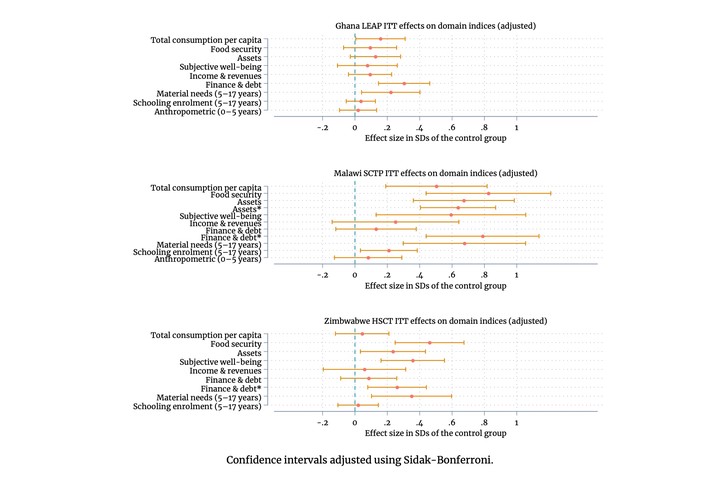More evidence on the impact of government social protection in sub-Saharan Africa: Ghana, Malawi, and Zimbabwe

Abstract
Governments in sub-Saharan Africa (SSA) have rapidly expanded cash transfer programmes as part of their social protection strategy over the last decade. Currently 46 countries have a state-sponsored social protection programme, compared to just 25 countries in 2005, with the most common type of programme being cash transfers, representing 51% of all social protection spending in the region. We present evidence on the overall impacts of state-sponsored cash transfer programmes in SSA, using data from three impact evaluations of government programmes. All three programmes were a key component of the poverty reduction strategy of the respective governments at the time of the evaluations. We show impacts across nine broad domains including both protection, production and human development, using baseline and follow-up household surveys on Treatment and Control groups. We relate the pattern of impacts to programme design parameters to further understand the constraints faced by ultra-poor rural households. All three programmes have strong effects on their primary objective—food security or food consumption, as well as on secondary objectives that include livelihood strengthening and children’s well-being. The largest and most consistent impacts occur in Malawi, where transfer values are in line with international best practice and payments were made regularly during the study period. All programmes show a positive income multiplier, with the multiplier largest in Malawi at 2.94. The overall results across three national programmes add to the growing evidence from Africa that government unconditional cash transfers have important positive effects on households, that these effects are not limited to just food security, and that programme design features influence the pattern and size of impacts. Results in this article are based on programmes that pass both criteria of implementation feasibility and political acceptability, and thus provide a more accurate reflection of what real-world cash transfer programmes can achieve in SSA.